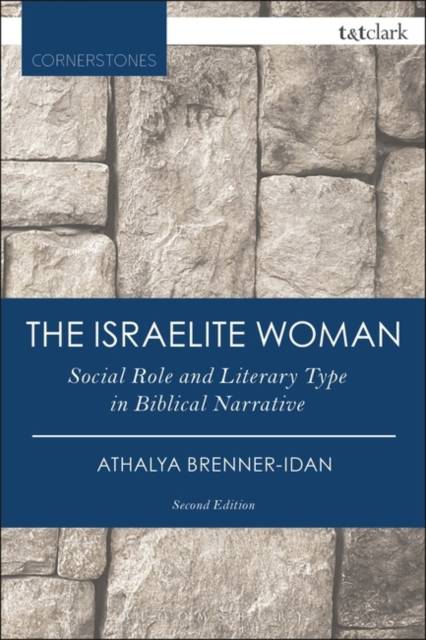
- Retrait gratuit dans votre magasin Club
- 7.000.000 titres dans notre catalogue
- Payer en toute sécurité
- Toujours un magasin près de chez vous
- Retrait gratuit dans votre magasin Club
- 7.000.0000 titres dans notre catalogue
- Payer en toute sécurité
- Toujours un magasin près de chez vous
55,95 €
+ 111 points
Description
In the first edition of The Israelite Woman Athalya Brenner-Idan provided the first book-length treatment by a feminist biblical scholar of the female characters in the Hebrew Bible. Now, thirty years later, Brenner provides a fresh take on this ground-breaking work, considering how scholarly observation of female biblical characters has changed and how it has not. Brenner-Idan also provides a new and highly personal introduction to the book, which details, perhaps surprisingly to present readers, what was at stake for female biblical scholars looking to engage honestly in the academic debate at the time in which the book was first written. This will make difficult reading for some, particularly those whose own views have not changed.
The main part of the book presents Brenner-Idans's now classic examination of the roles of women in the society of ancient Israel, and the roles they play in the biblical narratives. In Part I Brenner-Idan surveys what can be known about the roles of queens, wise women, women poets and authors, prophetesses, magicians, sorcerers and witches and female prostitutes in Israelite society. In Part II the focus is on the typical roles in which Hebrew women appear in biblical stories, as mother of the hero, as temptress, as foreigner, and as ancestress. In these narratives, for which there are standard plots and structures and characterizations readily available, women play a generally domestic role.
Not only is the book a highly valuable resource detailing the social role of women in ancient Israel, and showing how the interpretation of women in the bible has been influenced by convention, but it is also a challenging reminder of how outdated attitudes can still prevail.
The main part of the book presents Brenner-Idans's now classic examination of the roles of women in the society of ancient Israel, and the roles they play in the biblical narratives. In Part I Brenner-Idan surveys what can be known about the roles of queens, wise women, women poets and authors, prophetesses, magicians, sorcerers and witches and female prostitutes in Israelite society. In Part II the focus is on the typical roles in which Hebrew women appear in biblical stories, as mother of the hero, as temptress, as foreigner, and as ancestress. In these narratives, for which there are standard plots and structures and characterizations readily available, women play a generally domestic role.
Not only is the book a highly valuable resource detailing the social role of women in ancient Israel, and showing how the interpretation of women in the bible has been influenced by convention, but it is also a challenging reminder of how outdated attitudes can still prevail.
Spécifications
Parties prenantes
- Auteur(s) :
- Editeur:
Contenu
- Nombre de pages :
- 168
- Langue:
- Anglais
- Collection :
Caractéristiques
- EAN:
- 9780567657732
- Date de parution :
- 01-01-15
- Format:
- Livre broché
- Format numérique:
- Trade paperback (VS)
- Dimensions :
- 155 mm x 231 mm
- Poids :
- 294 g

Les avis
Nous publions uniquement les avis qui respectent les conditions requises. Consultez nos conditions pour les avis.






